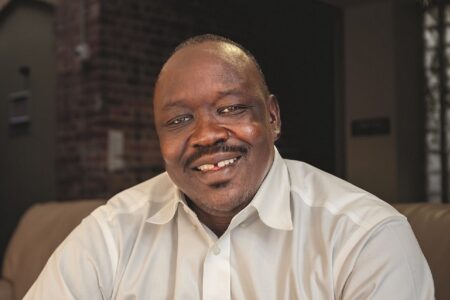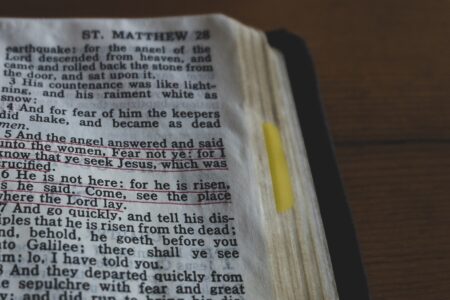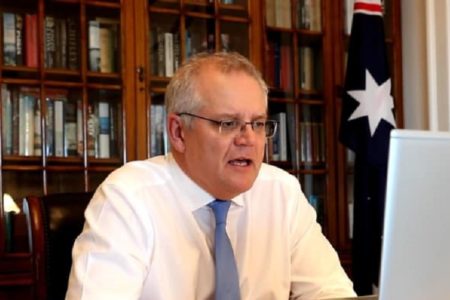By Denise Liersch
“Blessed are you who are poor. Blessed are you who are hungry, who mourn, who are excluded.”
Here we are at the beginning of a new year, where we think about the past year, and express our hopes for the year to come. A message I’ve heard a lot is, “let’s hope for a better year in 2022”. Though with recent events, there is a lot of uncertainty about what this year might look like.
Over these last months, I’ve been reflecting on how we think about our lives. What is it that makes us feel life is going well, and how does that affect how we live together as communities? It seems that if we feel life is treating us unfairly, or that there isn’t enough of the good stuff to go around, we can sometimes feel that we need to protect ourselves against others, or that we need to protect what we’ve got from other people.
On the other hand, if we feel pretty blessed in life, then we’re probably more likely to feel open to others. If we feel blessed with goodness, we’re more likely to feel open to others, to feel we have heaps to share with those around us. That’s a bit simplistic I know. But I wonder … where do you see yourself or our Church in this schema? Do we feel blessed?
What do we mean, when we say we feel blessed – especially in light of the way things are at present in the experience of so many in our families and communities. There is the ongoing impact of the pandemic in Australia and around the world; the enormous impact of the volcanic eruption in Tonga; human rights abuses in Myanmar and the Philippines; the crisis of climate change.
In a week or so, in our readings from Luke’s gospel, we hear Jesus speak about what it means to be blessed: ‘Blessed are you who are poor for yours is the kingdom of God. Blessed are you who are hungry and who mourn, and are excluded, for you will be filled.’ Throughout Luke’s gospel, we hear Jesus speak in this way: God favours those who have little, are suffering, grieving or excluded.
As I read these familiar words, I am reminded of a woman I know, whose entire life has been incredibly challenging, supporting her siblings and children living with disability and serious illness. Yet she constantly speaks about how good God is to her and how blessed she feels. Many who know her say they can’t imagine how she lives with all the challenges she faces every day. They don’t understand how she can say she feels blessed when life seems so hard for her.
So often, we think of ourselves as blessed when things are going well in life. We say we are blessed if we are successful, if our health is good, if we have a good job, secure income and place to live, a supportive family and friends to rely on.
Maybe as congregations, we feel blessed when we have enough money and people for all the tasks needed to support the congregation, or when people are flocking to our community and want to be part of the Church. Only then do we feel blessed.
But Luke’s gospel turns this idea upside down. We hear from Jesus that we are blessed when we are in trouble, because God is with us and for us. We are blessed as God takes up the cause of those who are poor and hungry and excluded. Blessing is about God coming to those in need.
The woman I spoke of before, reminds me of how Luke’s gospel describes Mary, the mother of Jesus. Both of them lived with huge challenges in life. Both declared their wonder at the goodness, love and blessings of a God of justice and kindness, who lifts up the poor and fills the hungry.
To be blessed, is to be filled with wonder at the love of God who is on the side of those who are poor, in trouble or who are grieving.
When it comes down to it, we know something of the truth of this. There is nothing more powerful than love to raise us up when we are laid low – to have someone by our side all the way, taking up our cause and being on our side, working for the justice and love of God. And the strangest thing of all? When we think of ourselves as blessed, we find ourselves open to others in their troubles and need and able to share whatever we have with each other. This isn’t just a matter of ‘mindset’, but a deep spiritual way of being and living.
Luke’s gospel tells us this over and over again. In Jesus, we see what the kingdom of God looks like. In Jesus, we experience God’s love for those who are hungry and thirsty for life and love. In Jesus, we know what it’s like for our souls to be restored. So for those who want to be followers of Jesus, we are invited to tell of the blessings and wonders we have seen, and to join in with Jesus in becoming the blessing of God to each other. The reign of God is all about attending to those whom God favours. We are invited to join in with this God who favours the poor, the hungry, those who mourn and are excluded – to part of the kingdom that is coming near.
As individuals, congregations and communities, as we lean into our hopes and plans for the coming year, what might it mean to think of ourselves as truly blessed?
May the grace of our Lord Jesus Christ, the love of God, and the communion of the Holy Spirit, be with us all.

Rev Denise Liersch
Moderator





